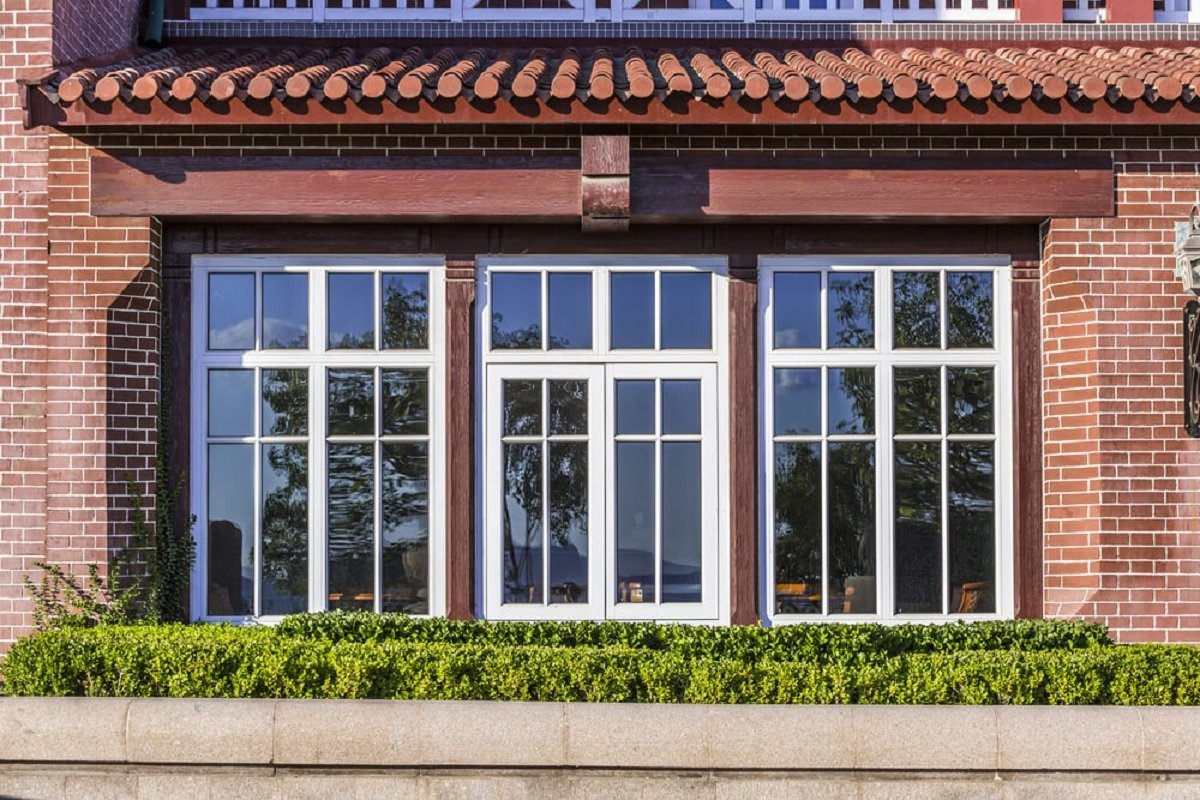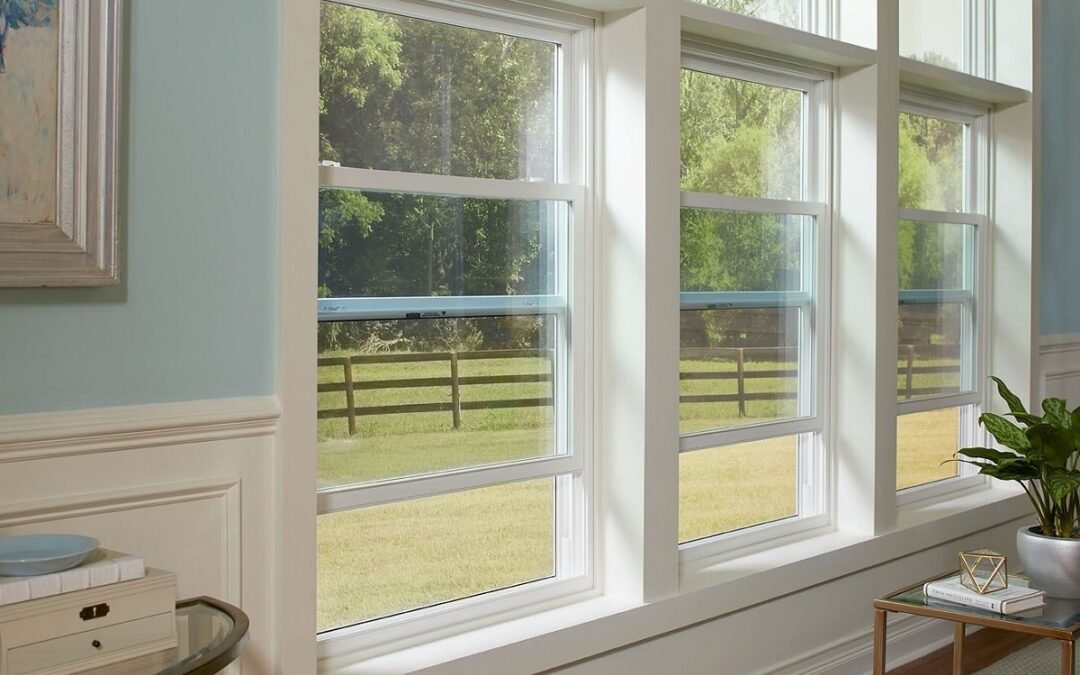Selecting the appropriate window frames is crucial for ensuring energy efficiency, durability, and comfort in Canadian climates, which vary widely from coast to coast. With factors like temperature fluctuations, humidity levels, and extreme weather conditions to consider, homeowners must make informed decisions to optimize their windows for maximum performance. Explore essential factors to consider when choosing the right window frames for your Canadian climate.
Climate Compatibility
Consider the specific climate conditions in your region of Canada when selecting window frames, as different materials offer varying levels of insulation, durability, and resistance to weather elements. Learn how to match window frames to your climate to maximize energy efficiency and comfort year-round.
– Cold Climates (e.g., Northern Canada): Opt for window frames with excellent thermal insulation properties, such as vinyl or fiberglass, to minimize heat loss and maintain interior warmth during frigid winters.
– Moderate Climates (e.g., Southern Ontario): Choose window frames that strike a balance between insulation and ventilation, such as wood or aluminum-clad wood, to provide adequate protection against temperature fluctuations while allowing for airflow during milder seasons.
– Humid Climates (e.g., Coastal British Columbia): Select window frames resistant to moisture and humidity, such as vinyl or aluminum, to prevent warping, rotting, or corrosion caused by prolonged exposure to moisture-laden air.
Matching window frames to your specific climate conditions ensures optimal energy efficiency, durability, and comfort in your Canadian home, minimizing heating and cooling costs while withstanding the rigors of local weather patterns.
Material Selection
Different window frame materials offer distinct advantages and drawbacks in terms of insulation, durability, maintenance, and aesthetics. Explore the pros and cons of common window frame materials to determine the best choice for your Canadian climate and lifestyle needs.
– Vinyl: Known for its affordability, low maintenance, and excellent insulation properties, vinyl window frames are ideal for cold climates where energy efficiency is paramount.
– Wood: Renowned for its natural beauty and thermal insulation, wood window frames require more maintenance but offer timeless charm and warmth, making them suitable for moderate climates with proper weather sealing and maintenance.
– Aluminum: Lightweight, durable, and resistant to corrosion, aluminum window frames are well-suited for humid climates and coastal areas where moisture exposure is a concern, although they may have lower thermal insulation properties compared to other materials.
– Fiberglass: Offering the strength of aluminum and the insulation of vinyl, fiberglass window frames provide excellent thermal performance and durability, making them suitable for diverse Canadian climates, although they may come at a higher cost.
Choosing the right window frame material based on your climate, budget, and maintenance preferences ensures long-term satisfaction and performance, enhancing the energy efficiency, durability, and aesthetics of your Canadian home.

Energy Efficiency Ratings
Look for window frames with high energy efficiency ratings certified by organizations like Energy Star or the National Fenestration Rating Council (NFRC) to ensure optimal performance in your Canadian climate. Understand how these ratings indicate the thermal performance and insulation properties of window frames, helping you make informed decisions.
– U-Factor: Lower U-factor values indicate better insulation, with vinyl and fiberglass window frames typically offering lower U-factor ratings compared to aluminum or wood.
– Solar Heat Gain Coefficient (SHGC): Consider the SHGC of window frames to balance solar heat gain with insulation, especially in regions with extreme temperature fluctuations, aiming for a balance between heat retention in winter and heat rejection in summer.
– Visible Transmittance (VT): VT values indicate the amount of natural light transmitted through window frames, allowing you to optimize daylighting while minimizing heat loss or gain depending on your climate needs.
Prioritizing energy efficiency ratings when selecting window frames ensures optimal thermal performance and comfort in your Canadian home, helping you reduce heating and cooling costs while minimizing environmental impact.
Sealing and Weatherproofing
Proper sealing and weatherproofing are essential for enhancing the performance and longevity of window frames in Canadian climates, where temperature fluctuations and extreme weather conditions can compromise efficiency and durability. Discover key considerations for ensuring effective sealing and weatherproofing of window frames.
– Weatherstripping: Install high-quality weatherstripping around window frames to create an airtight seal that prevents drafts, air leakage, and moisture infiltration, enhancing energy efficiency and comfort.
– Insulated Glass Units (IGUs): Choose window frames with double or triple-pane insulated glass units (IGUs) featuring low-emissivity (Low-E) coatings and inert gas fills for superior thermal performance and condensation resistance.
– Proper Installation: Ensure proper installation of window frames by experienced professionals following manufacturer guidelines and local building codes to prevent air leaks, water infiltration, and structural damage.
Effective sealing and weatherproofing of window frames are essential for maximizing energy efficiency, durability, and comfort in your Canadian home, protecting against drafts, moisture intrusion, and structural damage.
Maintenance Requirements
Consider the maintenance requirements of different window frame materials when selecting the right option for your Canadian climate, as proper upkeep is crucial for ensuring longevity and performance. Learn how to maintain and care for window frames to prolong their lifespan and preserve their appearance in diverse weather conditions.
– Vinyl: Vinyl window frames require minimal maintenance, such as occasional cleaning with mild detergent and water, making them suitable for busy homeowners or those living in harsh climates where exposure to dirt, debris, or salt spray is common.
– Wood: Wood window frames require regular painting, staining, and sealing to protect against moisture, rot, and insect damage, making them more suitable for moderate climates with lower humidity levels and less exposure to moisture.
– Aluminum: Aluminum window frames are resistant to corrosion and require minimal maintenance, although periodic cleaning and lubrication of hardware may be necessary to prevent wear and ensure smooth operation, making them suitable for humid climates or coastal areas.
Considering the maintenance requirements of window frame materials helps homeowners make informed decisions based on their climate, lifestyle, and preferences, ensuring lasting performance and aesthetics in their Canadian home.
Choosing the right window frames for your Canadian climate is essential for optimizing energy efficiency, durability, and comfort in your home. By considering factors such as climate compatibility, material selection, energy efficiency ratings, sealing and weatherproofing, and maintenance requirements, homeowners can make informed decisions that enhance the performance and longevity of their windows in diverse weather conditions. With the right window frames in place, Canadian homeowners can enjoy enhanced energy efficiency, comfort, and peace of mind year-round, regardless of the climate challenges they face.
